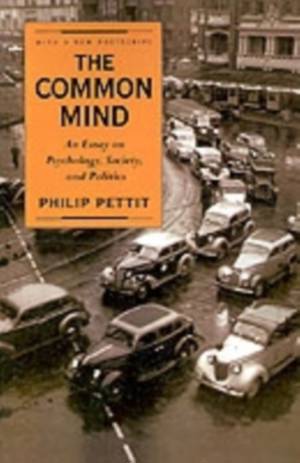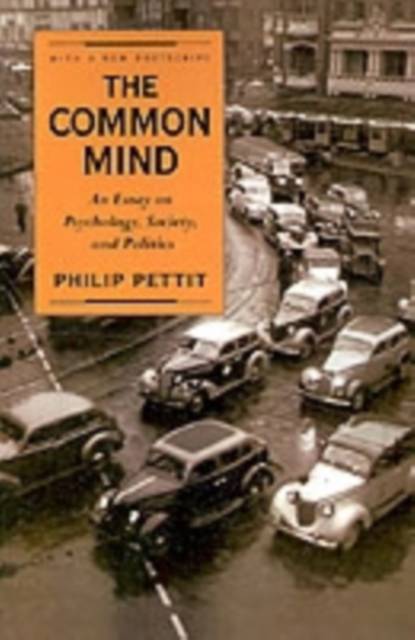
- Afhalen na 1 uur in een winkel met voorraad
- Gratis thuislevering in België vanaf € 30
- Ruim aanbod met 7 miljoen producten
- Afhalen na 1 uur in een winkel met voorraad
- Gratis thuislevering in België vanaf € 30
- Ruim aanbod met 7 miljoen producten
Zoeken
€ 220,45
+ 440 punten
Omschrijving
What makes human beings intentional and thinking subjects? How does their intentionality and thought connect with their social nature and their communal experience? How do the answers to these questions shape the assumptions which it is legitimate to make in social explanation and political evaluation? These are the broad-ranging issues which Pettit addresses in this novel study. The Common Mind argues for an original way of marking off thinking subjects, in particular human beings, from other intentional systems, natural and artificial. It holds by the holistic view that human thought requires communal resources while denying that this social connection compromises the autonomy of individuals. And, in developing the significance of this view of social subjects--this holistic individualism--it outlines a novel framework for social and political theory. Within this framework, social theory is allowed to follow any of a number of paths: space is found for intentional interpretation and decision-theoretic reconstruction, for structural explanation and rational choice derivation. But political theory is treated less ecumenically. The framework raises serious questions about contractarian and atomistic modes of thought and it points the way to a republican rethinking of liberal commitments.
Specificaties
Betrokkenen
- Auteur(s):
- Uitgeverij:
Inhoud
- Aantal bladzijden:
- 400
- Taal:
- Engels
Eigenschappen
- Productcode (EAN):
- 9780195106459
- Verschijningsdatum:
- 18/04/1996
- Uitvoering:
- Paperback
- Formaat:
- Trade paperback (VS)
- Afmetingen:
- 152 mm x 224 mm
- Gewicht:
- 544 g

Alleen bij Standaard Boekhandel
+ 440 punten op je klantenkaart van Standaard Boekhandel
Beoordelingen
We publiceren alleen reviews die voldoen aan de voorwaarden voor reviews. Bekijk onze voorwaarden voor reviews.








